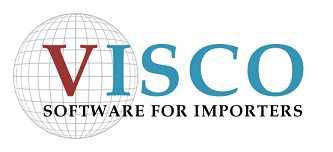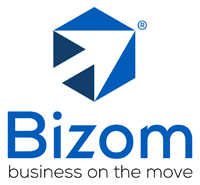Description

MobileERP

Xebra
Comprehensive Overview: MobileERP vs Xebra
MobileERP and Xebra are software solutions designed to cater to the needs of businesses looking to streamline their operations through enterprise resource planning (ERP) tools. Here's a comprehensive overview:
a) Primary Functions and Target Markets
MobileERP:
- Primary Functions: MobileERP provides functionalities that include inventory management, accounting, customer relationship management (CRM), supply chain management, and business analytics. Its focus is on mobility and accessibility, allowing users to manage these processes through mobile devices, which is ideal for businesses with a remote or on-the-go workforce.
- Target Markets: This software primarily targets small to medium-sized businesses (SMBs) that require flexible and mobile access to their ERP systems. Industries that benefit include retail, manufacturing, distribution, and service-based sectors that need robust tracking and management capabilities without being tied to desktop solutions.
Xebra:
- Primary Functions: Xebra offers a comprehensive suite that includes sales and invoicing, purchase order management, inventory control, production planning, financial accounting, and reporting. The software is designed to handle complex operations and provide insights through advanced analytics.
- Target Markets: Xebra targets both SMBs and larger enterprises across various industries, such as manufacturing, trading, distribution, and service sectors. It is particularly appealing to businesses that require detailed operational oversight and reporting functionalities.
b) Market Share and User Base
- MobileERP: The market share of MobileERP is growing, especially among SMBs that emphasize mobility and cost-effective solutions. Its user base is expanding gradually as more businesses adopt mobile-first strategies for their ERP needs.
- Xebra: Xebra tends to have a larger market share within the established companies and enterprises due to its comprehensive features and customization capabilities. Its user base is broader, encompassing more diverse industry segments with complex operational requirements.
c) Key Differentiating Factors
-
Mobility:
- MobileERP is primarily focused on mobile accessibility, which is a significant differentiator. It is designed to offer a seamless experience across mobile platforms, providing convenience for users who need access to ERP functionalities on the go.
- Xebra provides mobile access but is not as heavily centered on mobility as its core strength.
-
Comprehensive Feature Set:
- Xebra offers a more extensive range of features suitable for complex and large-scale business operations. This includes more detailed analytics and reporting, which benefit larger enterprises that demand in-depth insights.
- MobileERP offers features suited for businesses favoring simplified, mobile-first ERP capabilities.
-
Customization & Integration:
- Xebra excels at customization and integrates well with various third-party applications, making it versatile for businesses with specific needs or existing ecosystems.
- MobileERP, while offering integrations, focuses more on providing out-of-the-box solutions that are easy to deploy and manage.
-
Ease of Use:
- MobileERP is often praised for its user-friendly interface and accessibility, which is crucial for SMBs that might not have extensive IT resources.
- Xebra might have a steeper learning curve due to its comprehensive feature set but offers robust training and support.
In conclusion, the choice between MobileERP and Xebra primarily depends on the size and nature of the business, their specific functional needs, and the importance of mobile accessibility versus comprehensive ERP capabilities.
Contact Info

Year founded :
Not Available
Not Available
Not Available
Not Available
Not Available

Year founded :
Not Available
Not Available
Not Available
Not Available
Not Available
Feature Similarity Breakdown: MobileERP, Xebra
To provide a feature similarity breakdown for MobileERP and Xebra, I'll outline the core features they typically share, compare their user interfaces, and highlight any unique features that distinguish them.
a) Core Features in Common:
-
Inventory Management:
- Both MobileERP and Xebra offer inventory management capabilities, allowing businesses to track stock levels, manage purchases, and handle warehouse operations efficiently.
-
Accounting and Financial Reporting:
- They include tools for managing accounts, creating financial statements, and facilitating audits, which are crucial for financial transparency and planning.
-
Order Management:
- These platforms support order processing and tracking, ensuring that sales orders are captured and fulfilled accurately.
-
Customer Relationship Management (CRM):
- Integration of CRM features to manage customer interactions, track sales pipelines, and enhance customer service.
-
Human Resource Management (HRM):
- Both provide modules for handling HR operations, including payroll processing, employee records management, and attendance tracking.
-
Cloud Accessibility:
- As part of the mobile suite, both solutions offer cloud-based access, allowing users to operate the software from various devices and locations.
b) User Interface Comparison:
-
MobileERP:
- Typically features a straightforward and functional interface designed for mobile usability, with clear navigation and intuitive design. It focuses on essential features with a streamlined aesthetic to cater to mobile screens and is often customizable to fit different business needs.
-
Xebra:
- Known for a more dynamic and visually engaging interface. It often includes dashboards with graphical representations, which provide a quick overview of business performance. Its interface may offer more integration flexibility with other digital tools, emphasizing user-centric design and ease of use.
c) Unique Features:
-
MobileERP:
- Mobility and Offline Access: It often includes robust offline capabilities, allowing users to access and input data without an internet connection, with automatic synchronization once connectivity is restored.
- Custom Workflow Automation: MobileERP might allow deeper customization of business processes by letting users automate specific workflows according to business needs.
-
Xebra:
- Integration Ecosystem: Xebra may offer a wider range of integration capabilities with third-party applications, giving users flexibility to connect with other tools such as e-commerce platforms.
- Advanced Analytics and AI Capabilities: Offers enhanced analytics features with AI-driven insights that help in making data-driven decisions.
- Sector-Specific Modules: It might offer specialized modules tailored for specific industries, such as manufacturing or retail, which add value through industry-specific functionalities.
Each ERP solution brings its strengths to the table, catering to different organizational needs and preferences, and the choice between them might depend on specific business requirements or the industry in focus.
Features

Not Available

Not Available
Best Fit Use Cases: MobileERP, Xebra
MobileERP and Xebra are both enterprise resource planning solutions, but they cater to different types of businesses and scenarios. Here's how they best fit various use cases:
MobileERP
a) For what types of businesses or projects is MobileERP the best choice?
-
Small to Medium Enterprises (SMEs): MobileERP is particularly well-suited for small to medium-sized businesses that require a flexible and cost-effective ERP system. Its mobile-first approach allows smaller companies to manage operations efficiently without needing extensive IT infrastructure.
-
Field Service Management: Companies that have a significant portion of their workforce on the field (e.g., maintenance services, field sales) benefit greatly from MobileERP. Its mobile capabilities ensure that field staff can access and update information in real-time, improving service delivery and customer satisfaction.
-
Retail and Distribution: Businesses in the retail and distribution sectors can use MobileERP to streamline inventory management, sales tracking, and supply chain operations. The mobile access helps store managers and distribution staff manage daily activities and stock levels efficiently.
-
Project-Based Industries: For industries that run on projects, such as construction or event management, MobileERP provides tools to manage resources, timelines, and budgets on the go, enabling better project management and execution.
Xebra
b) In what scenarios would Xebra be the preferred option?
-
Scalable Enterprises: Xebra is a robust solution that can scale effectively as a business grows. It is ideal for companies expecting significant growth and needing an ERP system that can evolve with increased complexity and size.
-
Manufacturing and Production: Xebra excels in situations that require detailed production planning, quality control, and process optimization. Its advanced manufacturing modules support complex production environments.
-
Comprehensive Financial Management: Organizations that prioritize intricate financial operations, accounting processes, and compliance might prefer Xebra for its strong financial integration and reporting capabilities.
-
Multi-Location Enterprises: Companies with multiple locations can leverage Xebra’s centralized database to maintain uniformity across branches while allowing adaptability for regional processes and practices.
Industry Verticals and Company Sizes
d) How do these products cater to different industry verticals or company sizes?
-
MobileERP:
- Industry Verticals: Suited for retail, distribution, services, and project-based industries.
- Company Sizes: Geared towards SMEs, offering affordability, ease of deployment, and user-friendly interfaces that minimize the need for extensive training.
-
Xebra:
- Industry Verticals: Ideal for manufacturing, production, finance-driven sectors, and multi-location operations.
- Company Sizes: Best for larger companies or those on a rapid growth trajectory that need comprehensive solutions and scalability to handle increased operational complexity.
In summary, while MobileERP is more beneficial for smaller businesses requiring mobility and simplicity, Xebra serves larger or growing companies that demand robust, scalable, and integrated solutions. Each caters to specific industry needs and organizational priorities, enhancing operations and strategic management in their respective domains.
Pricing

Pricing Not Available

Pricing Not Available
Metrics History
Metrics History
Comparing undefined across companies
Conclusion & Final Verdict: MobileERP vs Xebra
When assessing MobileERP and Xebra for their overall value and suitability for business operations, it's important to evaluate them based on key factors such as functionality, ease of use, scalability, integration capabilities, customer support, and pricing. Here is a conclusion and final verdict on which product offers the best overall value, their respective pros and cons, and recommendations for users trying to decide between the two:
a) Best Overall Value
Best Overall Value: To determine the best overall value, we need to identify which software offers the most comprehensive features at an affordable price while meeting business needs effectively. If MobileERP provides a robust mobile platform with seamless integration, user-friendly interface, and flexible pricing, it could be more valuable for businesses prioritizing mobility and remote access. On the other hand, Xebra might offer superior integration capabilities with existing systems, particularly excelling in specific industries. Ultimately, the best overall value depends on the specific requirements of the business but typically leans towards the software that blends comprehensive features and affordability most effectively.
b) Pros and Cons
MobileERP:
- Pros:
- Strong focus on mobile accessibility and user experience.
- Suitable for businesses with a remote workforce or those requiring field operations.
- Typically offers real-time data access, enhancing decision-making processes.
- Cons:
- Might be limited in integrations if bespoke systems or unusual configurations are needed.
- Scalability could be a concern for very large enterprises requiring extensive customization.
Xebra:
- Pros:
- Highly customizable with robust integration capabilities.
- Suitable for industries requiring specific compliance or process workflows.
- Often better scalability for rapidly growing businesses or large enterprises.
- Cons:
- The interface may be less intuitive, especially if focusing less on mobile functionalities.
- Potentially higher costs due to customization and extensive features.
c) Recommendations
Recommendations for Users:
-
Assess Business Needs: Evaluate the specific needs of your business. If mobile access and remote functionality are top priorities, MobileERP is likely the better option. For complex integration needs and scalability, consider Xebra.
-
Consider the Budget: Determine your budget and compare it with the pricing structure of each solution. While functionality is important, ensure that the overall cost aligns with the business's financial capabilities.
-
Trial Periods and Demos: Utilize trial periods or demos offered by both platforms. This hands-on experience provides insight into the user interface and ease of use, helping to make a more informed decision.
-
Consult with IT Teams: Engage your IT department or consultant to evaluate compatibility with existing systems. They can provide input on integration and potential challenges.
-
Customer Support and Vendor Reliability: Investigate customer support and the reputation of each software vendor. Reliable support is crucial for resolving issues promptly and ensuring smooth operations.
In conclusion, both MobileERP and Xebra have their own strengths and cater to different business needs. By thoroughly evaluating these areas, businesses can select the software that offers the most value relative to their unique requirements.
Add to compare
Add similar companies



